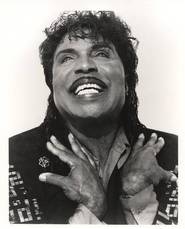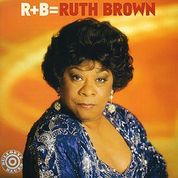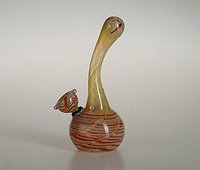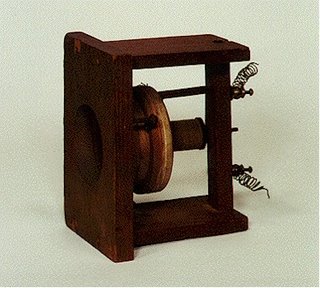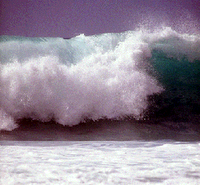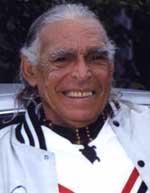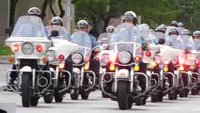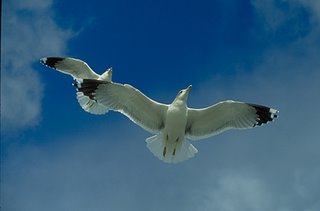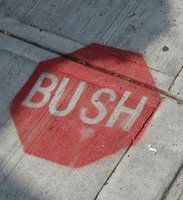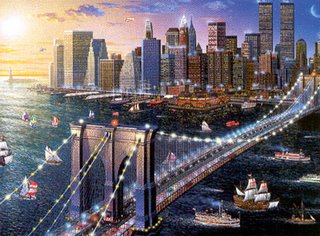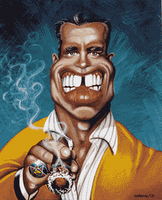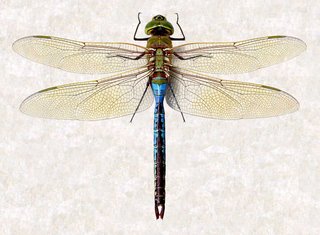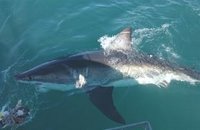
Not really. I just like the song.
If you don't mind, we're going to try something different today. The following is a couple of related excerpts from a childhood memoir I've been writing, tentatively titled No Place For a Girl Like Me. It has to do with boats, and a whole lot more. This is my first draft, so be gentle with me.
*****
The summer I turned seven, my father bought a cabin cruiser, a 32 foot Verity Skiff with lapstrake hull, built in Baldwin on Long Island. My parents took a Safety & Navigation course given by the Power Squadron, and my father bought a Captain's hat for himself and a First Mate's hat for my brother. I demanded to have a hat, too, because I sensed the status involved, so he got me a sailor's cap. I knew that cap bestowed no status at all, but it was all I could get. We joined a yacht club and went on long trips to Nantucket, Block Island, Martha's Vineyard, and the Thousand Islands in the St. Lawrence Seaway.
We were on Lake Champlain in Vermont as the golden dawn broke, anchored on the still water, the smooth surface broken only by small silver fish leaping out of the silvery ripples. I was alone on deck, too excited to sleep, and everywhere I looked was gold and silver, like a fairy tale.
After breakfast, we fished from the deck. My father baited my hook with thick, lumpy bloodworms.
"Fish are sentient beings and we don't want to hurt them," he said.
I didn't know what "sentient" meant but I was glad we didn't have to hurt them. I didn't even want to eat them. I wondered why it was okay to hurt the worms, though.
When I get the hook caught in my lower lip, my father removed it by pushing it slowly backward so it would do the least damage. I knew that my father could fix anything because he always said so, and it was a good, safe feeling. Later I caught three tiny perch, which he strung for me while I posed for a picture. Then we threw them back because they were too small to keep. I hoped he wouldn't notice how small I was.
*****
One day we left our boat slip in Freeport and cruised through the Woodcleft Canal out to sea. It was a beautiful August day and my brother and I were sitting in the fore cockpit with our dog, Patty. Our perch in the bow of the boat had no access to the cabin below; to get there, you had to walk around the catwalk holding onto a rail along the edge of the upper deck, above my reach. The sun sparkled on the waves as we plowed through them, and soon there was no land in any direction.
We cruised through this glorious wonderland for a couple of dreamy hours until suddenly Richie and I heard a loud explosion. Turning, we saw the cabin in flames. My brother, a good swimmer, tossed our dog into the ocean and jumped in after her. I was afraid she'd drown but didn't know what to do about it. I didn't know what to do at all, so I waited. The flames leaped higher into the blue sky. The heat was intense and the air looked wavy. It would have been beautiful if I weren't so scared.
After several minutes, my father eased his way around the catwalk with an adult life jacket in his hand. He tried to drape it around me, but his hands were burned and it fell on his new Sperry Topsiders and bounced into the water.
"Should I jump?" I asked.
"I'm afraid you'll have to," he said.
He seemed apologetic, which I noted because I had never known my father to evince any kind of remorse before.
I held his pinkie for a second and jumped into the cold water. I didn't know how to swim so I paddled as fast as I could to get away from the flames leaping off the boat as it burned down to the waterline. Within minutes, there was almost nothing left of it, just flames and smoke, black wood hull that got smaller so fast it looked as if something was eating it.
The water was freezing and dark.
An hour later, three men in an open fishing boat came along and held a long pole with a hook on the end for me to grab. They pulled me into their boat and wrapped me in a gray blanket. I was shaking violently and burst into tears.
"Why are you crying now?" chided one of the men. "You're safe now."
I stopped crying immediately, gulping and snuffling, ashamed of my Childish-Emotional-Display because I forgot I wasn't allowed to cry. They took me into port, shaking and holding in my tears, and handed me off to a policeman on the dock. My family was nowhere around.
The next thing I remember is visiting my mother in the hospital where she was being treated for third degree burns on both her legs. She was standing above the hatch when it blew up. Her legs were slathered in vaseline and covered with white gauze bandages.
She noticed that I had washed only my face for several days, the part I could see, and all around it my skin was grey and grungy. She asked a nurse for a washcloth and rubbed my neck hard until it was sore while the water dripped down my back.
Many years later, I ponder why my father, an excellent swimmer, didn't put me on his back and keep my mother afloat, too, instead of consigning a seven-year old child to the deep, to literally sink or swim.
I swam.






